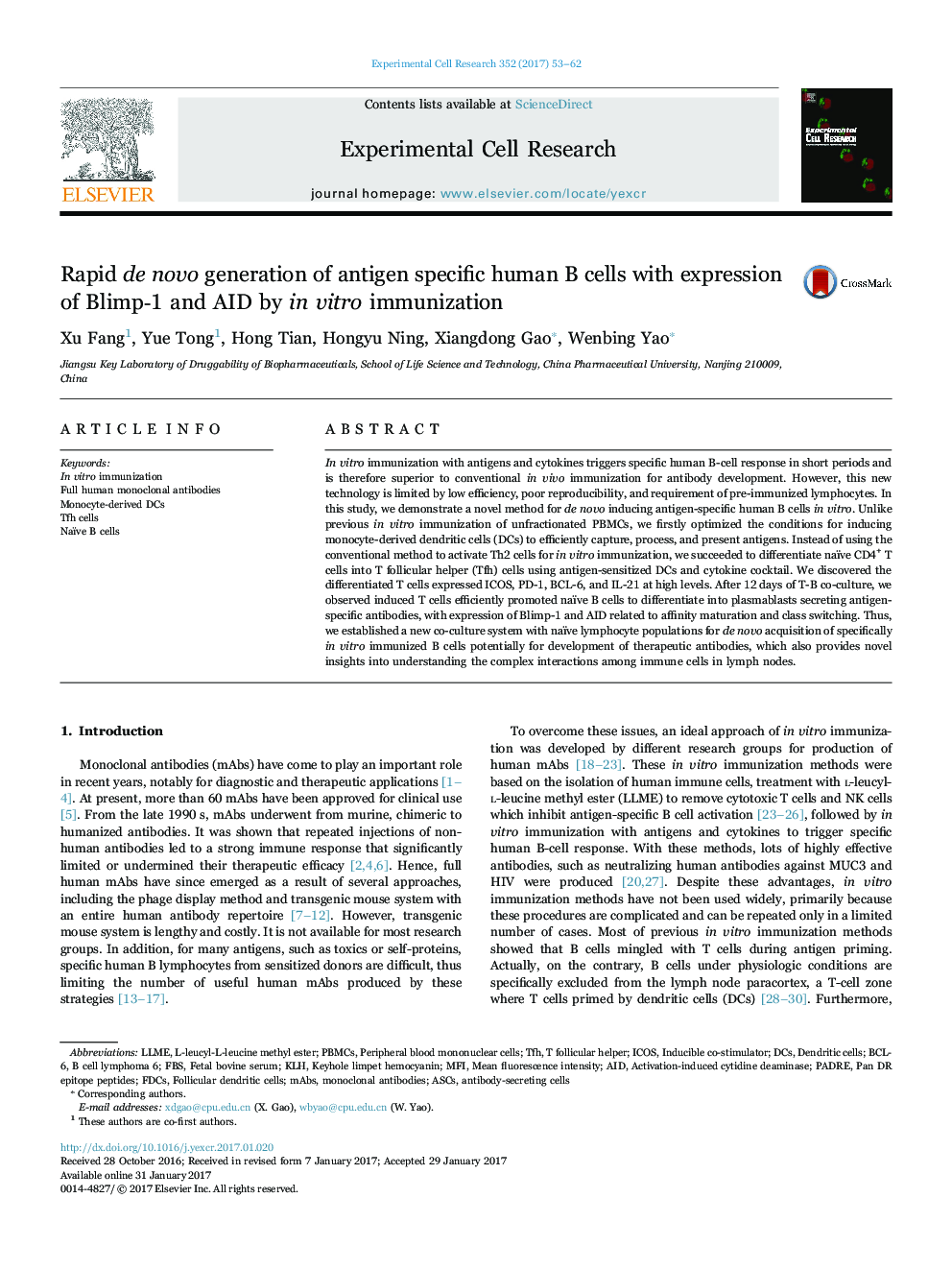| Article ID | Journal | Published Year | Pages | File Type |
|---|---|---|---|---|
| 5527207 | Experimental Cell Research | 2017 | 10 Pages |
â¢De novo generation of antibody-secreting cells from naïve lymphocytes in vitro.â¢Convert in vitro immunization of unfractionated PBMCs to step-by-step cell culture.â¢Succeed to differentiate naïve CD4+ T cells to Tfh cells for in vitro immunization.â¢Detected AID and Blimp-1 indicate class-switch recombination might be initiated.
In vitro immunization with antigens and cytokines triggers specific human B-cell response in short periods and is therefore superior to conventional in vivo immunization for antibody development. However, this new technology is limited by low efficiency, poor reproducibility, and requirement of pre-immunized lymphocytes. In this study, we demonstrate a novel method for de novo inducing antigen-specific human B cells in vitro. Unlike previous in vitro immunization of unfractionated PBMCs, we firstly optimized the conditions for inducing monocyte-derived dendritic cells (DCs) to efficiently capture, process, and present antigens. Instead of using the conventional method to activate Th2 cells for in vitro immunization, we succeeded to differentiate naïve CD4+ T cells into T follicular helper (Tfh) cells using antigen-sensitized DCs and cytokine cocktail. We discovered the differentiated T cells expressed ICOS, PD-1, BCL-6, and IL-21 at high levels. After 12 days of T-B co-culture, we observed induced T cells efficiently promoted naïve B cells to differentiate into plasmablasts secreting antigen-specific antibodies, with expression of Blimp-1 and AID related to affinity maturation and class switching. Thus, we established a new co-culture system with naïve lymphocyte populations for de novo acquisition of specifically in vitro immunized B cells potentially for development of therapeutic antibodies, which also provides novel insights into understanding the complex interactions among immune cells in lymph nodes.
Graphical abstractDownload high-res image (184KB)Download full-size image
